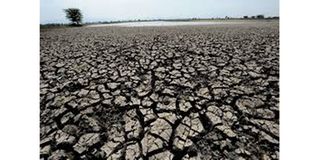Tanzania to establish climate change finance department

What you need to know:
- Heavy rains in the previous season caused widespread damage, leading the allocation of over Sh1 trillion for infrastructure repairs, including bridges, roads, and crops lost to flooding
Arusha. The Tanzanian government has announced that it is in final stages of establishing a dedicated department to manage climate change financing, a move prompted by the increasing economic impact of unpredictable weather patterns.
Heavy rains in the previous season caused widespread damage, leading the government to allocate over Sh1 trillion for infrastructure repairs, including bridges, roads, and crops lost to flooding.
Deputy Minister for Finance, Mr Hamad Hassan Chande, announced this on Wednesday, February 19, 2025, during the fifth meeting of directors responsible for climate change finance from East African Community (EAC) member states.
Mr Chande said Tanzania is one of the EAC countries that have made significant strides in its climate change policies, particularly in agriculture and health requiring substantial financing to address these challenges.
“Tanzania is now in the final stages of establishing a special department to manage climate change finance. We’ve made significant progress, and we will launch this department soon,” he said, expressing optimism about its impact.
He further highlighted the far-reaching consequences of climate change on economic, social, and political spheres, stressing its deep societal effects.
“The economy is vulnerable to fluctuations due to climate change, and communities bear the most significant impact,” he said.
“Discussions on funding, effective fund utilisation, and cooperation are vital in mitigating climate change’s effects across EAC member states,” he added.
The ministry of Finance’s chief finance officer, Ms Mukajungu Kamuzora, supported the initiative, noting that climate change has severely affected Tanzania’s economy.
“This meeting is crucial for strategising on securing climate change finance. Experts here should discuss institutional arrangements and collaboration with development partners to access these funds,” added Ms Kamuzora.
As part of Tanzania’s strategy, the government is strengthening ties with international organisations and development partners while also enhancing local government capacity to address regional climate challenges.
A representative from the Global Green Growth Institute (GGGI), Mr Pablo Martinez, said the Institue assists countries in developing financial plans to mitigate the effects of climate change.
He explained that the institute helps member states build the capacity to design programmes, projects, and strategies that can attract funding and investments.
Mr Martinez also highlighted the potential opportunities for EAC countries, such as carbon trading and waste management.
The director of environment at the Vice President’s Office, Ms Kemilembe Mutasa, discussed the direct impacts of climate change in Tanzania, such as droughts, floods, insufficient rainfall, and rising sea levels.
She outlined strategies to address these issues, focusing on agriculture, fisheries, health, and infrastructure resilience-building efforts.
“Key sectors for mitigating greenhouse gas emissions include forestry and energy. Major projects like the Julius Nyerere Hydropower Project (JNHPP) and modern infrastructure like the Standard Gauge Railway (SGR) are also part of our emission reduction strategies,” she said.
The director of the Production Sector at the EAC Secretariat, Mr Jean-Baptiste Havugimana, noted that climate change affects all economic sectors, particularly agriculture, water, infrastructure, and energy.
He added that policy and regulatory inconsistencies hinder large-scale project implementation.
“We have a 10-year climate change finance strategy, from 2022 to 2032, aimed at reducing the effects of climate change,” Havugimana explained, stressing the importance of international financial systems in tackling the issue.





